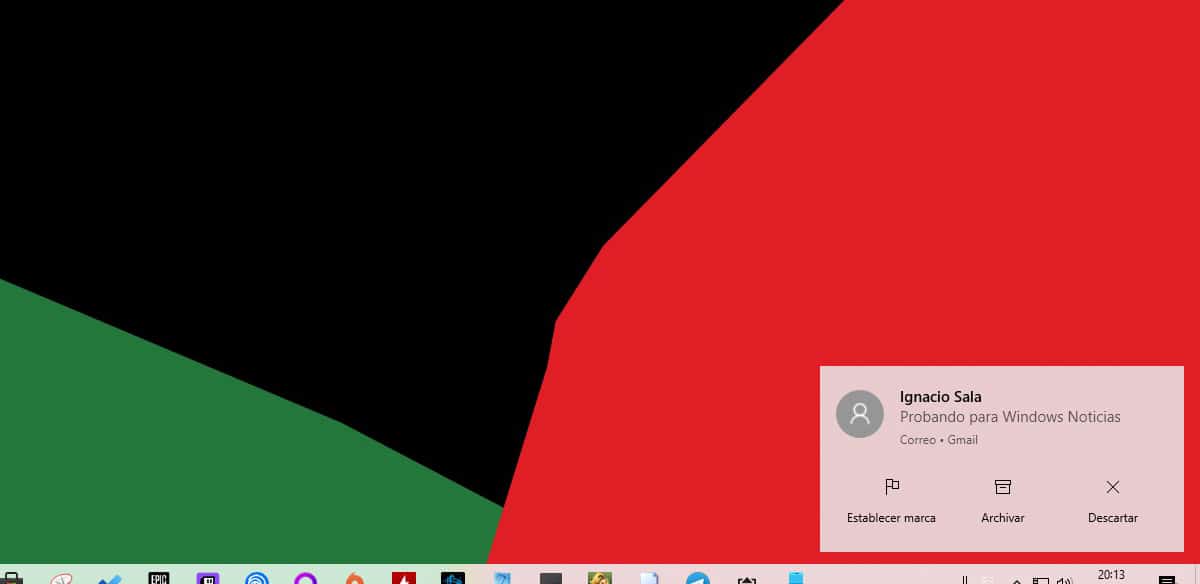
Microsoft has been able to implement notifications in Windows 10 in a way much more effective and practical than Apple did years ago on macOS. As a user of both operating systems, I have to admit that I am much more comfortable managing Windows notifications than macOS.
Although the operation of notifications is much simpler, when we begin to receive a large number of notifications, mainly when we unlock our equipment and all the notifications that we had pending are shown, it's a bummer having to go discarding one by one by clicking on the X.
However, for this first world problem, there is a more than simple solution, as simple as clicking on the mouse wheel. If you start to receive a large number of email notifications, calendar appointments, system notifications as soon as you start your computer, you just have to click on the central mouse wheel and they will disappear together.
These notifications are automatically discarded, so you will have to return to the notification center if you want to see in more detail what each of them is about.
Disable non-essential notifications
One way to prevent notifications from becoming more of an annoyance than a help in Windows is disable all notifications for non-essential apps for our work.
This way, if we just need to be aware of notifications from Slack or email, we can disable all other notifications such as the calendar, messaging applications, applications that have a habit of sending useless notices ...
To deactivate the notifications of some applications, we must access the options of windows settings, click on System and then, in the right column, click on Notifications and actions.
In the left column, we must disable switch of the applications from which we do not want to receive notifications.